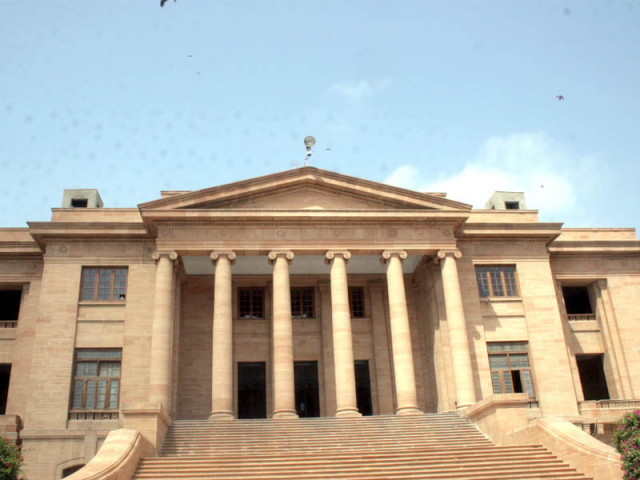Police officers demoted on SC orders barred from getting fresh promotions
SHC issued stay order on promotions announced by Sindh IGP.

"With this policy, the petitioner and his colleagues would be deprived of their due promotions," Malik Naeem Iqbal, the petitioner’s lawyer. PHOTO: EXPRESS/FILE
Justice Munib Akhtar, while heading a single bench, also issued notices to the provincial chief secretary, and the secretaries of home, services and general administration departments and Sindh IGP to file their comments on the promotions policy by August 6.
A sub-inspector of the Crime Investigation Department, Chaudhry Arif Hussain, had gone to court challenging a standing order passed by the Sindh police chief. This order allowed promotions to the demoted police officials by granting them exemptions from mandatory training courses and relaxations in age. The petitioner informed that the police chief had ordered demotions of officers working in various categories in the police department through an official order issued on March 23, 2012.

In August 2011, Chief Justice Iftikhar Muhammad Chaudhry had taken suo motu notice of targeted killings in the city, which was going through one of its bloodiest summers. The apex court’s five-member bench had given a detailed judgment, which contained various directives and orders, including withdrawal of the controversial out-of-turn promotions of police officers, to improve the peace situation.
To circumvent the SC order, the provincial government had passed Sindh Civil Services (Amendment) Act 2013 legalising shoulder promotions, deputations and absorptions of the officers in various Sindh government departments, including the police.
On June 12, the SC’s three-member bench struck down the law after a series of hearing and ordered the Sindh government to withdraw out-of-turn promotions within three weeks. Following these orders, the government had taken back such promotions from many officials, except 12 officers, including SSP Chaudhry Aslam, SSP Farooq Awan, SSP Raja Umer Khattab and SSP Niaz Khoso.
“To accommodate his blue-eyed persons, the IG issued impugned order granting blanket exemptions or relaxation to those officers, who had been demoted under the SC directives,” the petitioner disclosed.
According to the Sindh police notification issued on April 3 and signed by DIG Establishment Dr Amin Yousufzai, “a demoted official, who has not passed any promotional course, will be exempted from A1, B1 and the lower school course.” The demoted police officials, who have passed the lower school course shall be exempted from the intermediate course, it added. The relaxation and exemption shall be allowed only once to those demoted officials, who have crossed the age limit to undergo the prerequisite promotional cases, the notification stated.
Malik Naeem Iqbal, the petitioner’s lawyer, argued that the IGP’s standing order is in violation of directives passed by the apex court. After hearing the arguments, the bench issued notices to the respondents for August 6. “Till the next date, the case of any police official, who is affected by the directions of the Supreme Court, as noted above, and who is also, in any manner, said to come within the scope of aforementioned provisions of the standing order shall not be considered for promotion,” Justice Akhtar ordered.
The bench clarified, however, that if the departmental promotion committee is of the view that any particular case of promotion will not violate the Supreme Court directives, it may pass an order, but only after satisfying why a particular officer is entitled to exemption.
Published in The Express Tribune, July 30th, 2013.


















COMMENTS
Comments are moderated and generally will be posted if they are on-topic and not abusive.
For more information, please see our Comments FAQ